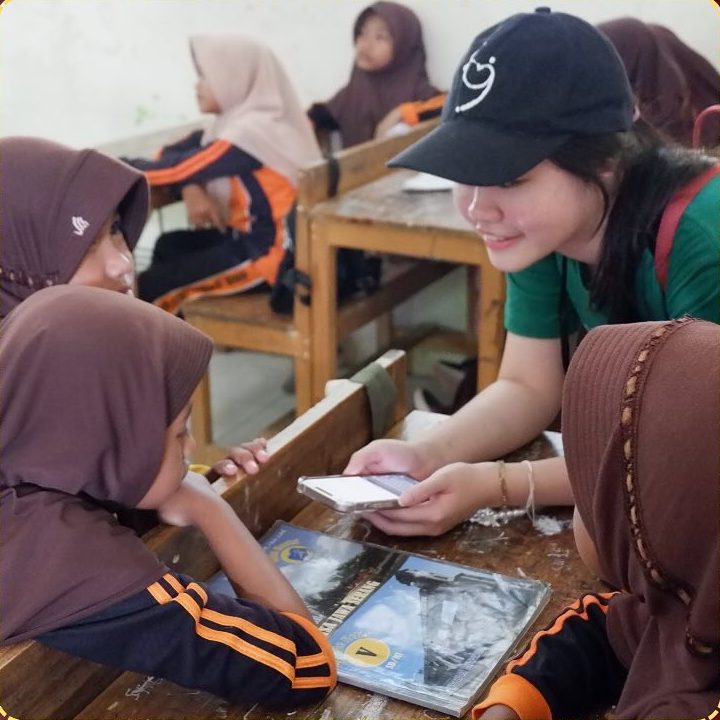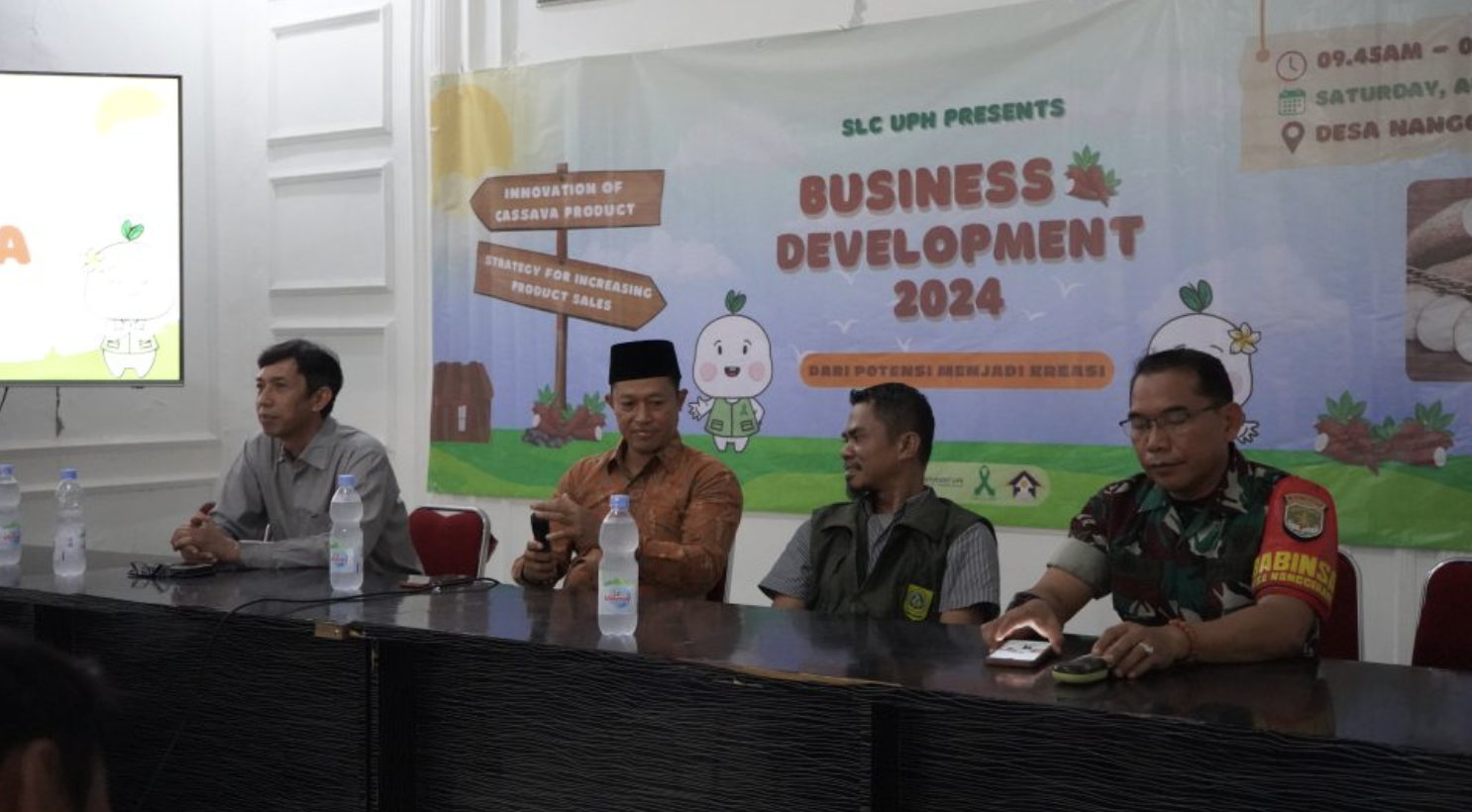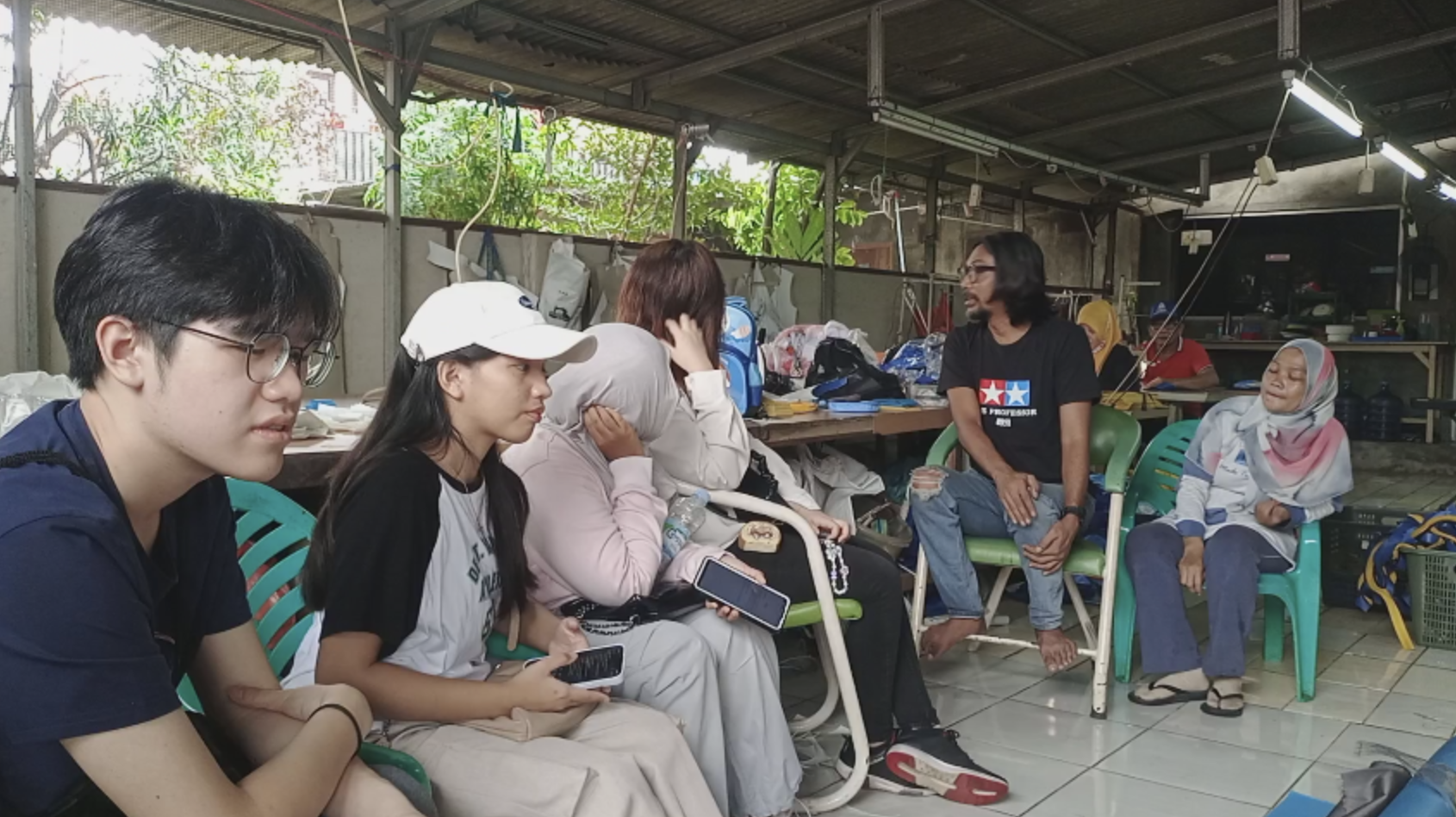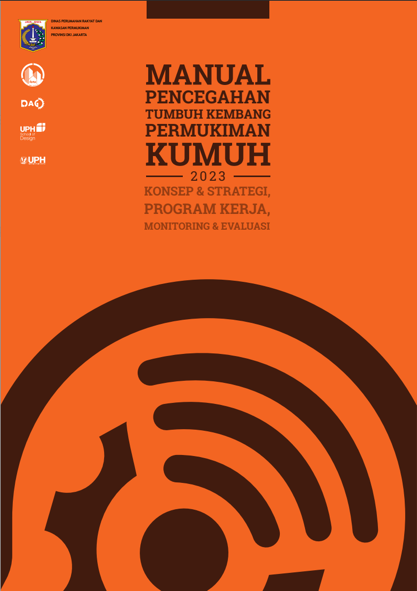
SDG 1: NO POVERTY
Universitas Pelita Harapan (UPH) is committed to addressing SDG 1: No Poverty by promoting education and community development as pathways out of poverty. Through scholarships and financial aid, UPH provides access to quality education for students from low-income backgrounds, empowering them with the skills needed for economic independence. The university also engages in community outreach programs that focus on poverty alleviation, such as providing vocational training, entrepreneurship workshops, and support for small businesses. By fostering education and economic opportunities, UPH aims to reduce poverty levels and contribute to sustainable development within its local and national communities.
Low-income students
receiving financial aidUniversity anti-poverty programmes
Community anti-poverty programmes
In the academic year 2023/2024, Universitas Pelita Harapan (UPH) recorded a total of 16,092 active students. Of this number, 9,533 students (59.2%) were regular students, while 6,559 students (40.8%) were categorized as low-income students. Within the low-income group, 4,290 students (26.7% of the total; 65.5% of the number of low-income students) received financial aid, whereas 2,269 students (14.1%) did not. The financial aid provided to eligible students may take the form of partial or full scholarships, which can include tuition fee discounts, meal support, and accommodation assistance. This distribution reflects UPH’s strong commitment to inclusivity and equal opportunity, ensuring that financial barriers do not prevent deserving students from pursuing a quality education.
0
Active Student Body
0
Regular Students
0
Total Number of Low-Income Students
0
Number of Low-Income Students w/ Financial Aid
Bottom Financial Quintile Admission Target
Universitas Pelita Harapan (UPH) consistently demonstrates its commitment to widening access to higher education through various scholarship and financial-aid schemes. These include academic achievement scholarships, student-athlete scholarships, and financial-aid programs specifically designed for prospective students from low- and lower-middle-income families.
In the Academic Year (AY) 2023/2024, UPH set a target of 735 scholarship recipients as part of its educational assistance program. This target reflected the university’s strategic goal to strengthen inclusivity by providing opportunities for capable students who face economic constraints. The actual outcome was according to planned expectations, with 696 Indonesian students and 25 international students ultimately receiving educational assistance and scholarships. The new cohort represented diverse backgrounds, coming from cities across the Indonesian archipelago, from Sabang to Merauke, as well as from international origins such as South Korea, the United States, Syria, Timor Leste, India, Myanmar, Sri Lanka, Cambodia, Kenya, Uganda, the Philippines, and China. This achievement represents a 46% increase above the original target, underscoring UPH’s institutional commitment to ensure that financial need does not hinder access to higher education.
Data from Badan Pusat Statistik (BPS) Indonesia, 2024 indicate that scholarship recipients largely come from households in the bottom 40% income group (quintiles I and II)—commonly categorized as low-income and lower-middle-income families. Many of these students represent communities where access to higher education remains limited due to financial and geographic constraints. Through targeted recruitment, UPH prioritizes these groups, ensuring that educational opportunities reach those most in need.
The university scholarship plotting exemplifies this inclusive model. These programs provide full scholarships covering tuition, dormitory, and in some cases, living expenses. Students undergo a four-year holistic formation process combining rigorous academic training, spiritual development, and community engagement. This plot is offered to various faculties and programs; however the Teacher’s College and International Teacher’s College receives the most students. Specifically for these programs, in the fourth year, students undergo a one-year teaching internship at schools under the Yayasan Pendidikan Pelita Harapan (YPPH) or partner institutions, enabling students to apply their learning in real classrooms, often in under-resourced communities. Upon graduation, alumni are placed in YPPH or partner schools to serve as educators for a designated period, creating a sustainable cycle of access, formation, and service.
UPH also disseminates information about these scholarship opportunities through its official social media channels, including YouTube, Instagram, and the UPH website, as well as through direct outreach to schools, churches, and community leaders across Indonesia. These efforts ensure that students from remote and marginalized regions are aware of and can apply for available financial assistance. Additionally, the New Student Orientation of AY 2023/2024 can be further watched here: https://www.youtube.com/watch?v=zhrcZZe3-H4.
By exceeding its scholarship target and focusing on students from the lower income quintiles, UPH affirms its mission to integrate social equity and inclusion into its institutional development framework, actively contributing to national efforts to expand access to quality higher education for all.
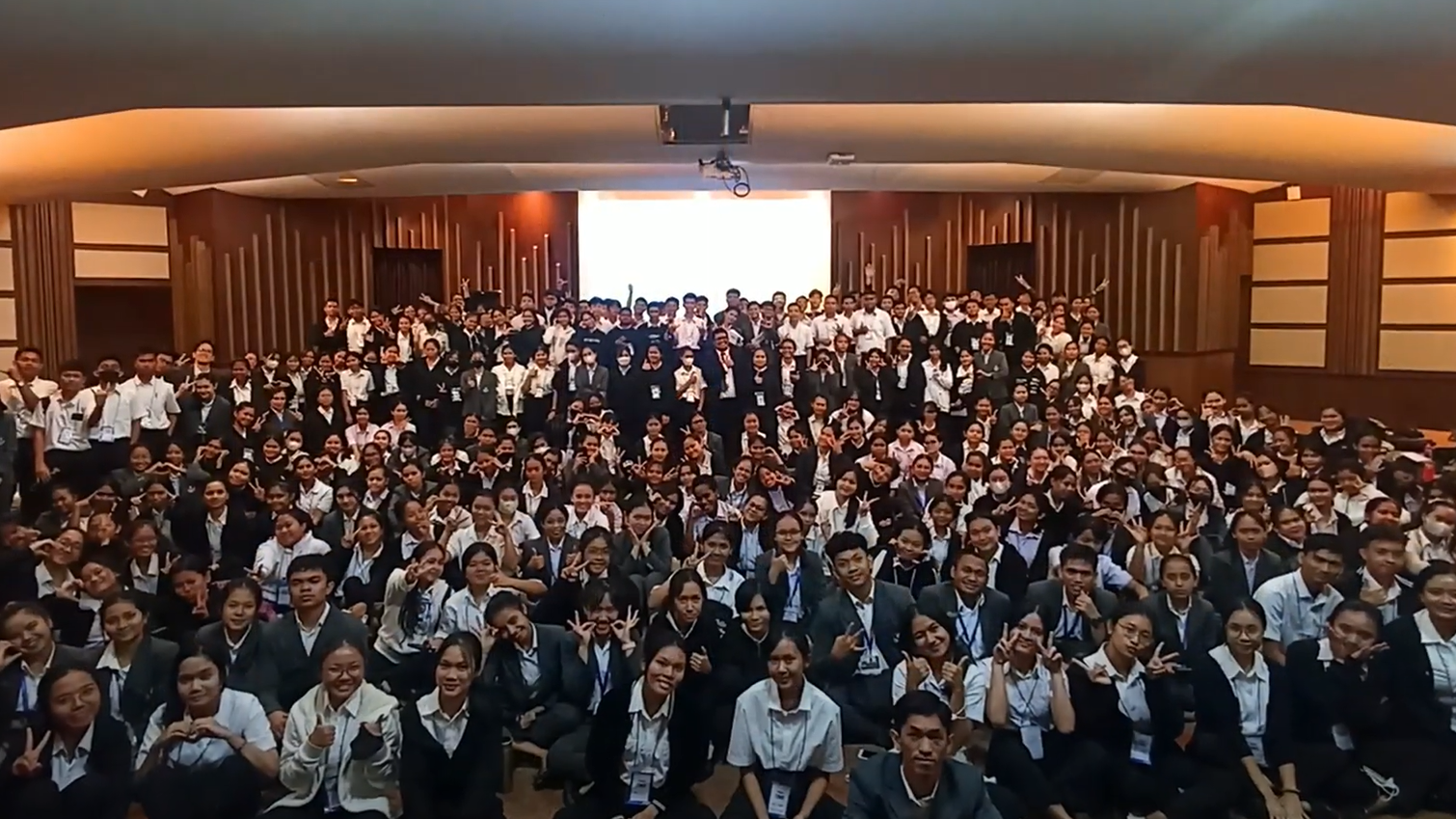
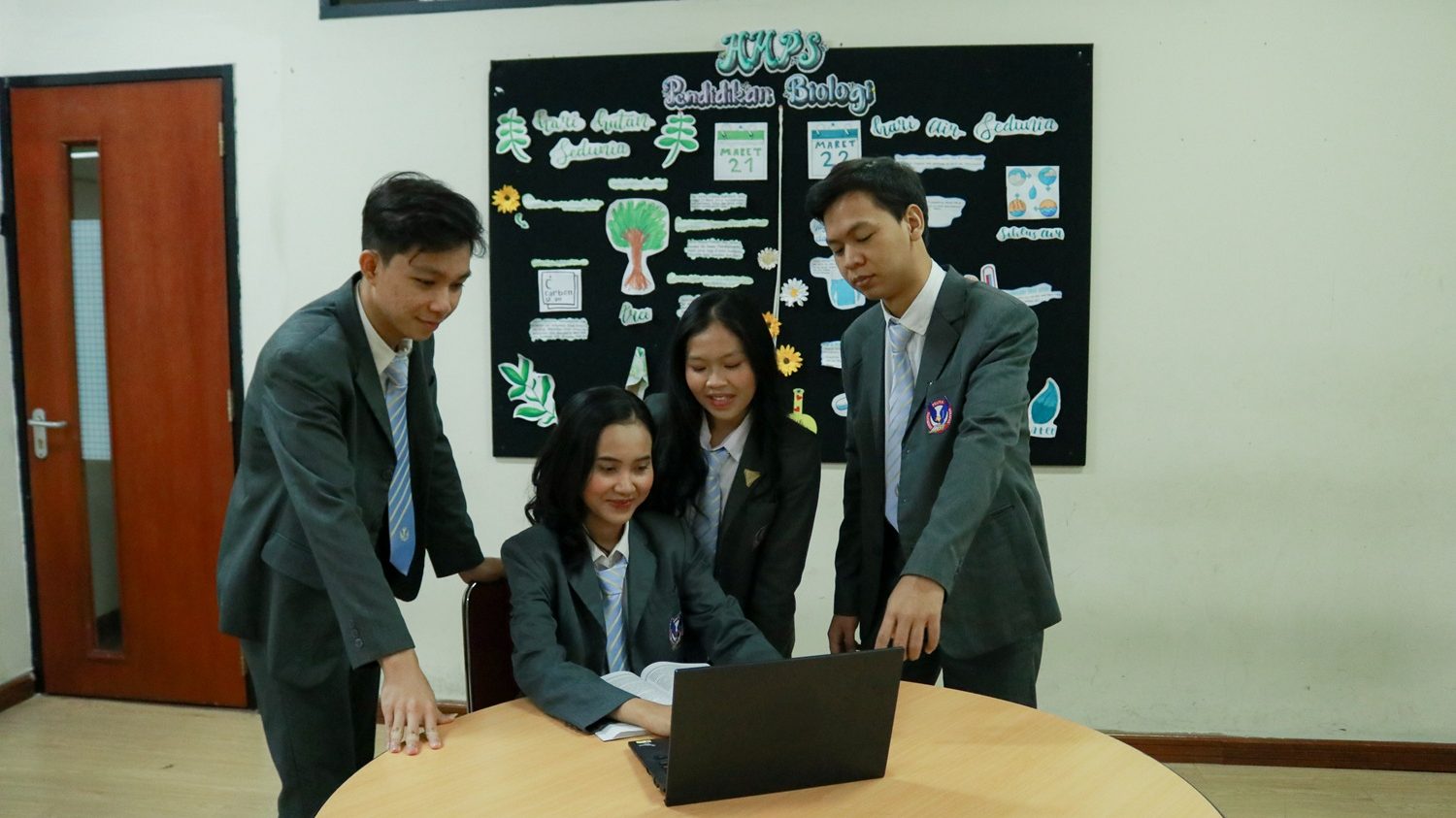
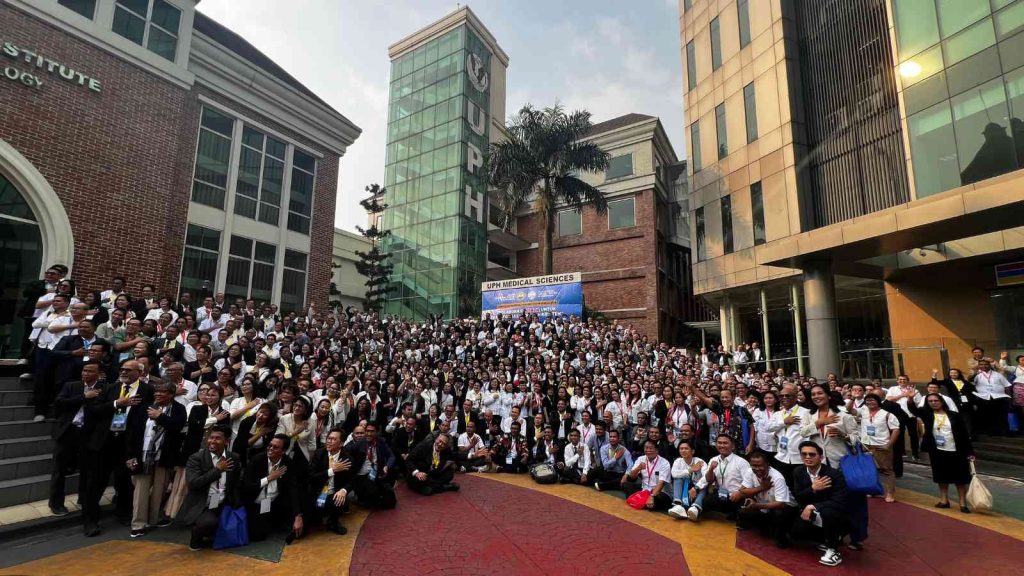
Bottom Financial Quintile Student Success
All Universitas Pelita Harapan (UPH) students are targetted to graduate before their study period ends (3.5 to 4 years). This target also considers the national accreditation indicators for On-Time Graduation rates of students. Specifically for low-income students sponsored by the UPH Foundation, all of them (100%) are required to complete their studies on time, as written in the scholarship agreement between the Foundation, the students, and their parents.
Moreover, below is the graduation rate of students coming from low-income households are as given as evidence below:

Source: UPH Accreditation Dashboard, 2024
It is to be noted that the percentage of on-time graduation is not by number 100%, considering that some students failed to complete their studies and drop-out in the middle of the program. However, the remaining students that remained in the program entirely graduated on-time (100%).

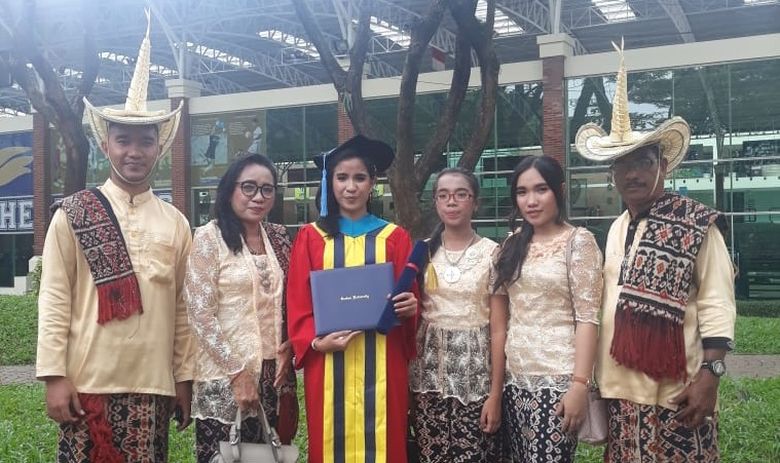
Low-Income Student Support
Universitas Pelita Harapan (UPH) offers a wide range of support services to ensure that students from low-income backgrounds can continue and complete their studies successfully. Beyond financial aid, UPH provides structured mentoring programs, especially for low-income students, pairing them with trained senior mentors who offer guidance on academic, personal, and spiritual matters. Each student has one academic supervisor who helps them develop an optimal study plan, monitors and evaluates study results and learning outcomes. Through this program, each student’s study results are monitored so that students can successfully complete their studies. All academic supervisors are appointed by the Dean with a decree from the Dean of each faculty at UPH. Academic supervisors are responsible for students from the time the student commits UPH until the student graduates from UPH.
Counseling and psychological support are also available through the HOPE Counseling and Assessment Center and the Cornerstone Psychological Center, where students can access professional services for stress management, family challenges, and career development. This support not only helps students address personal and emotional difficulties but also strengthens their resilience and overall well-being, making them more likely to stay engaged in their studies and successfully complete their education.
In addition, UPH provides an enriching campus life through a wide variety of student organizations and extracurricular clubs (UKM) that are open to all students, especially those from low-income backgrounds. These communities, ranging from arts, sports, cultural activities, to academic and professional development groups, offer students opportunities to build friendships, develop leadership skills, and find a sense of belonging. By actively engaging in these organizations, low-income students are able to enrich their university experience, maintain a balanced and meaningful daily life on campus, and stay motivated to pursue and complete their studies.

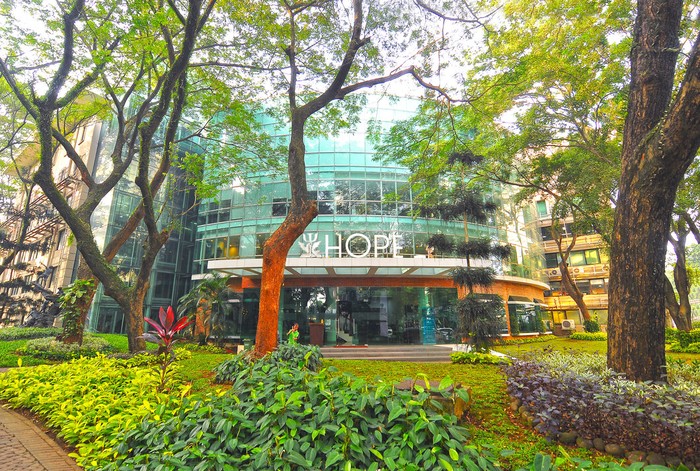

Bottom Financial Quintile Student Support
Educational assistance is provided to the bottom financial quintile students of the Faculty of Education and Faculty of Nursing that consist of educational development fees and academic learning fees. These fees are given to students throughout their studies at Universitas Pelita Harapan (UPH). During their studies at UPH, the students also receive supporting fees such as re-registration fees, final project defense fees, accommodation fees (dormitory), student uniforms, meals, internet connection facilities, library, and transportation from their hometowns at the beginning of their come to UPH.
At the Faculty of Education, International Teachers College (ITC), diversity is more than a value. The 2023/2024 academic year welcomed students from 24 countries across Asia and Africa, including Indonesia, China, Myanmar, Laos, Kenya, Cambodia, Sri Lanka, and the Philippines. Each brings unique stories and life experiences that enrich UPH’s global learning community. Another important dimension of diversity lies in the socioeconomic backgrounds of its students, many of whom come from modest means. Most families of Teachers College (TC) students earn between Rp 1 million and Rp 3 million per month, with parents commonly working as farmers, small business owners, laborers, or civil servants. Over 50% of TC students are first-generation university entrants, making higher education a milestone achievement for their families. Similarly, students at the International Teachers College (ITC) represent a broad socioeconomic spectrum, with many coming from missionary families, rural communities, and even orphanages or refugee settings. Despite limited resources, these students exhibit exceptional perseverance and academic excellence. Supported through full and partial scholarships, UPH provides them with the opportunity to pursue higher education, professional training, and guaranteed teaching placements, turning economic limitation into lifelong empowerment.
UPH also provides targeted financial assistance to ensure access for students from low-income backgrounds. Although tuition, housing, meals, and uniforms at the International Teachers College (ITC) cost only a fraction of similar programs in Australia, Canada, or the United States, some students may still find them unaffordable. To address this, ITC UPH offers financial assistance. Through the University-to-Work Program, supported by the Pelita Harapan Educational Foundation, qualified students from Indonesia and abroad receive full coverage of tuition, housing, meals, textbooks, and uniforms. Upon graduation, these students are guaranteed work placement within affiliated schools and institutions, allowing them to immediately apply their knowledge, gain professional experience, and contribute to the advancement of education across Indonesia. In addition, Indonesian students may apply for merit-based scholarships that partially cover tuition and fees. These initiatives demonstrate UPH’s strategy to reduce financial barriers and expand higher education opportunities for students with limited economic means.
Aside from that, starting in 2023/2024 Academic Year, Universitas Pelita Harapan (UPH) formalized a partnership with PT Bank Oke Indonesia Tbk. (OK Bank) to introduce a student loan facility aimed at widening access to higher education. The agreement, signed at UPH Lippo Village, allows both new and current students (as well as their parents or guardians) to apply for education loans that cover tuition fees across UPH’s programs, including undergraduate, graduate, and professional studies. Loan disbursements are made directly to UPH to ensure that funds are used exclusively for educational expenses. This initiative represents UPH’s effort to reduce financial barriers and provide alternative financing solutions for students who may struggle with the cost of tuition, accommodation, and related expenses. By working with a private national bank, UPH expands its financial aid ecosystem beyond scholarships and grants, offering a sustainable pathway for students from diverse economic backgrounds to pursue higher education.

Low or Lower-Middle Income Countries Student Support
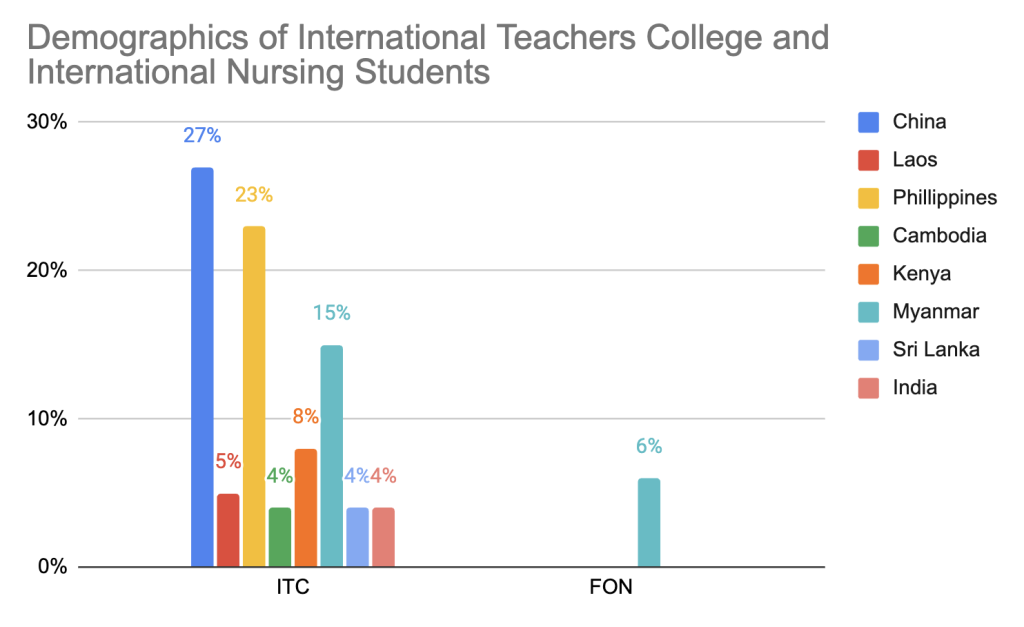
Universitas Pelita Harapan (UPH) opens opportunities for students coming from low or lower-middle incomes through a Foundation-Based Scholarship in forms of educational assistance.
The educational assistance is given to international students who pass the selection for the Faculty of Education and Faculty of Nursing and consists of educational development fees and academic learning fees. These fees are given to all eligible students throughout their studies at UPH. During their studies at UPH, all students also receive supporting fees such as re-registration fees, final project defence fees, accommodation fees (dormitory), student uniforms, food and beverages, internet connection facilities, and library book borrowing. Students also receive assistance with student visa fees and medical insurance during their studies at UPH.
The demographics of the faculties also showcase how the spread of international students from low and lower-middle income countries come from various cultural backgrounds, thus showcasing UPH’s commitment in its role to alleviate poverty in other countries by providing quality education.

Local Start-Up Assistance
As a university that continues to support sustainable business, Universitas Pelita Harapan (UPH) has conducted several initiatives, especially to assist local start-ups in kick-starting their business through workshops and consultations. UPH has a dedicated unit called Sparkslab managed by the Faculty of Economics and Business that conducts these efforts, as well as independent projects by students facilitated by the Student Development and Alumni Engagement Unit.
An example a start-up assistance project was conducted by Service Learning Community, where Universitas Pelita Harapan students implemented a business development project in Desa Nanggerang, Bogor, to strengthen local economic resilience. They supported small enterprises through entrepreneurship training, product innovation, and digital marketing assistance. The initiative empowered local entrepreneurs to grow sustainably while giving students hands-on experience in community-based business development.
Read More Here: SLC 2024 Business Development Program
Local Start-Up Financial Assistance
Universitas Pelita Harapan (UPH) has strengthened its commitment to local startup development by providing both financial assistance and business mentoring for MSMEs in collaboration with Kecamatan Kelapa Dua, Kabupaten Tangerang. Through student-led Service Learning Projects, the program supports over 150 small enterprises with training, product development, and digital marketing initiatives. By combining academic expertise with real-world application, UPH empowers local entrepreneurs to build sustainable, competitive businesses that contribute to community and national economic growth.
Read More Here: Universitas Pelita Harapan Launches MSME (Micro, Small, and Medium Enterprises) Assistance Program in Kecamatan Kelapa Dua
Programmes for Services Access
Universitas Pelita Harapan (UPH), through the 2024 International Relations Development Program (IRDP), advanced its service access initiatives by organizing programs that improve community access to essential health services. In collaboration with AMSA-UPH, the “Sehat Desaku” project provided medical check-ups, health education for children, and environmental cleanup efforts to promote sustainable well-being in Wanayasa Village. By combining healthcare access, education, and community involvement, UPH reinforced its commitment to inclusive development and equitable access to basic services for all.
Read More Here: UPH IRDP 2024 Expands Community Access to Health Services in Wanayasa Village
Policy Addressing Poverty
Universitas Pelita Harapan (UPH) reinforces its commitment to poverty alleviation through the development of a comprehensive policy addressing slum prevention and sustainable community growth. In partnership with the DKI Jakarta Government, UPH’s faculties collaborated to design the Policy for the Prevention of Slum Growth and Development, focusing on both infrastructure improvement and community empowerment. By integrating psychological, social, and economic interventions, this policy helps reduce poverty through stronger community resilience, financial inclusion, and sustainable livelihood opportunities.

